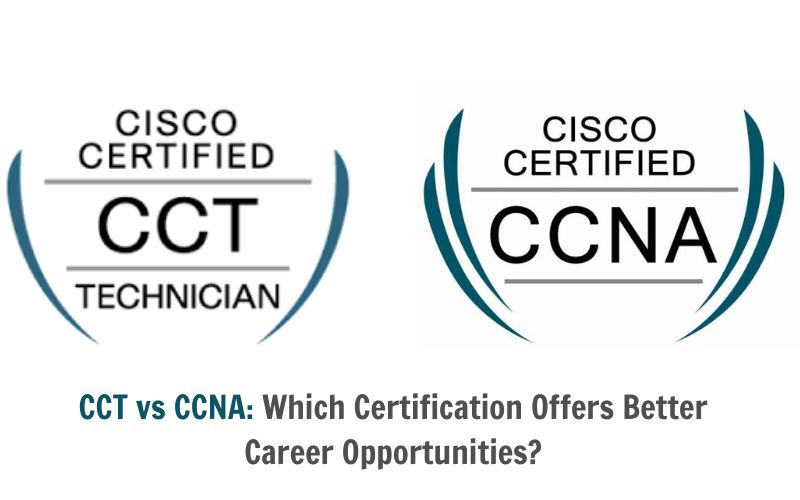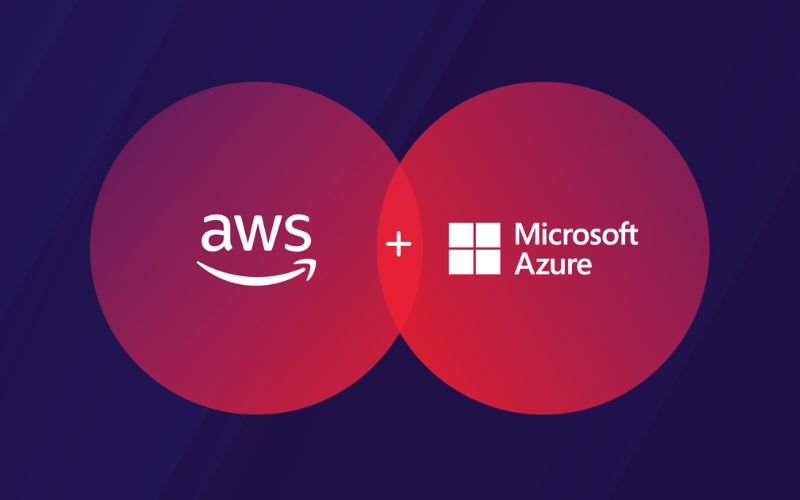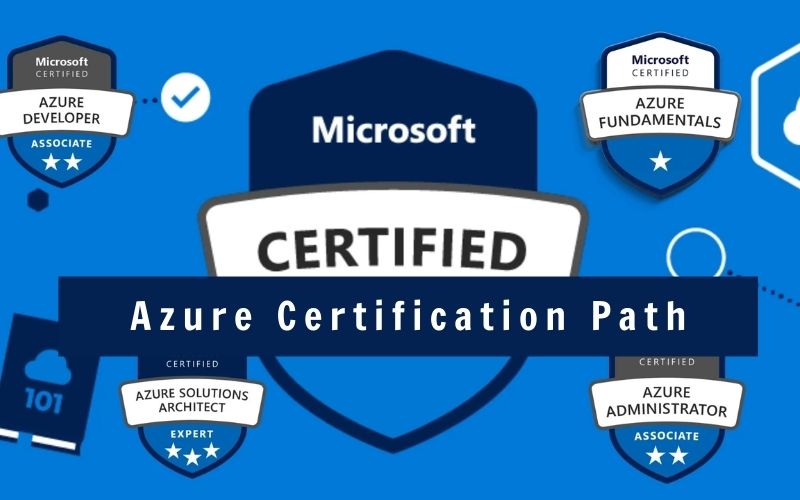As technology continues to advance, more and more companies are recognizing the importance of having a skilled solutions architect on their team. A solutions architect is responsible for designing and implementing complex IT solutions to solve business problems. They work closely with stakeholders, project managers, and developers to ensure that the solution is scalable, secure, and meets the company’s needs.
If you are interested in how to become a solutions architect, this guide from IT Exams will provide you with a step-by-step plan to achieve your goal as well as our free AWS Solutions Architect Associate Exam Questions to ace your coming exam!
What Is A Solutions Architect?
Solution Architects’ role is to develop an overall technology vision for a given business solution. They are responsible for designing, describing, as well as managing the solution. In many respects, a solution architect bridges the gap between a business problem and a technology solution and outlines each process and necessity needed for that solution to work., which is very essential to get the work done. Furthermore, their role in ensuring the success of IT projects is highlighted. That is the reason why it is required that they be able to work collaboratively with stakeholders, project managers, and developers to ensure that the solution is delivered on time, within the estimated budget, and to meet the needs or company demand.
What Does A Solutions Architect Do?

A skilled solutions architect examines the existing environment and determines which technologies are accessible and which software products must be developed in order to deliver the best solution for the problem at hand. The solutions architect then develops an overarching strategic technical vision, similar to how an architect designs a building blueprint. Based on that goal, they create a budget for developing a software product.
After the stakeholders have agreed on the project, the solutions architect is in charge of monitoring the process and keeping the stakeholders up to date and informed on its progress. Most projects involve both technical and non-technical stakeholders, and the solutions architect must ensure that the demands of each party are recognized and factored into the project’s scope.
Tasks and responsibilities
Your day-to-day activities as a solutions architect may involve the following, depending on the firm you work for and the project you’re working on:
- Making proposals and creating road maps for possible solutions
- Solution design, debugging, and performance analysis
- Documenting and disseminating best practices for new solutions
- Advocating for process changes and assisting in the development of solutions
- Communicating new features and benefits to partners, consumers, and other stakeholders on a regular basis
- Providing technical leadership to a team throughout the lifespan of a project
- Creating proof-of-concept projects to test your suggested solutions
- reviewing and confirming other team members’ solution designs
Why Should You Pursue A Career As a Solutions Architect?
You could be a solutions architect if you’re creative, analytical, extroverted, realistic, and able to communicate issues and solutions in both technical and non-technical terms.
According to Glassdoor, the US average base income for a solutions architect is $197,854, with a range of around $99,000 to $172,000 annually. Between 2021 and 2031, the US Bureau of Labor Statistics (BLS) predicts a 4% growth in job possibilities for computer network architects. Solution architects should find more employment as firms expand their information technology networks.
What Do You Need To Become a Solutions Architect?
You will need to do a bunch of things like studying a lot of information, doing practice tests, scheduling AWS Solution Architect Associate exam, and trying to pass it at the first attempt, etc. Yes, of course. But what we are gonna talk about is the qualities you must have in order to become a Solutions Architect. You must have a wide range of talents. Aside from technical expertise, many soft skills will assist you in becoming a Solutions Architect.
Communication Skills
Communication abilities are essential. Excellent interpersonal skills will aid in the communication of company objectives and technical terms. You must successfully communicate with your clients to ensure that everyone is on board with your ideas.
Commercial Awareness
You must also have great business knowledge. You will find it much simpler to transfer into the job of Solutions Architect if you have a strong grasp of business processes and business analytics. If you lack business operations skills, you will be unable to assist the organization in question in meeting its objectives.
Willingness to Invest in Your Own Development
Technical competence is required, and because technology is always evolving, you must also maintain your technical knowledge up to date. As a result, an ideal Solutions Architect is someone who has a true interest in technology and spends a significant amount of their free time geeking out.
Time Management
Because good project management is a big component of your work, you must be able to manage not just your own time but also the time of many other people. The person in charge of overseeing the solution architecture’s implementation must be able to manage duties across multi-disciplinary teams and guarantee that everyone is working on time. It just takes one person failing to perform a task on time to derail a whole project.
Influencing
A Solutions Architect’s job generally entails changing the way organizations operate, and individuals are often averse to change. Powerful people also have their own opinions on how things need to be done. As a result, as you can see, a person in this situation might need to use their capacity for persuasion to convince others to embrace their point of view.
How To Become A Solutions Architect

Acquire a combination of education, experience, and skills
- Obtain a relevant degree: A bachelor’s degree in computer science, computer software engineering, or a career closely related is held by the majority of solution architects. It could also be beneficial to have a degree in business administration, management, or information technology.
- Obtain the necessary work experience: The majority of solution architects have years of experience in software development, IT, or a related field. It’s essential to gain knowledge in a variety of IT fields, like network administration, software development, and database management, to build a well-rounded skill set.
- Learn technical skills: Solution architects need to be knowledgeable in a range of technical fields, such as database administration, network infrastructure, and software development. It’s crucial to get knowledgeable about a wide range of software and hardware as well as several programming languages.
- Develop soft skills: Additionally, solution architects need to be effective leaders, collaborators, and communicators. The ability to lead cross-functional teams, work with others, and explain technical concepts to non-technical audiences are all crucial.
- Acquire applicable certifications: Numerous solution architects hold certifications in disciplines like cloud computing, corporate architecture, and project management. Through the demonstration of your expertise in particular fields, certifications can help you stand out in a crowded job market.
- Consider higher education: Some solution architects pursue advanced degrees, such as a Master’s Degree in Corporate Administration, to gain a deeper understanding of corporate strategy and management.
- Create a portfolio: Create a portfolio of projects that showcase your technical and leadership skills as you gain experience. Examples of this include knowledge-demonstrating case studies, white papers, and presentations.
- Networking with other IT professionals: You can get knowledge about potential career paths, an understanding of other IT-related fields, and relationships with potential employers or clients by doing this.
Certifications to earn

There are several solution architect certificates available, and the appropriate certification will depend on your area of interest and the specific technology you work with. Here are some popular solution architect certifications:
- AWS Certified Solutions Architect: This certification verifies your ability to develop and implement scalable, highly available, and fault-tolerant systems on AWS. Marginal note, it is also said that there are a bunch of AWS solutions architect associate benefits for analysts.
- Microsoft Certified Professional: Azure Solutions Architect Expert: This certification certifies your ability to develop and deploy Microsoft Azure solutions such as security, networking, and storage.
- Google Cloud Certified – Professional Cloud Architect: This certification certifies your ability to design, create, and manage Google Cloud Platform solutions such as security, networking, and storage.
- The Open Group Certified Architect (Open CA) credential certifies your ability to apply architectural principles to business and technological issues, as well as exhibit competency in a variety of architecture frameworks.
- TOGAF 9 Certified: This certification confirms your understanding of The Open Group Architectural Framework (TOGAF), a widely used corporate architectural framework.
- The Red Hat Certified Architect (RHCA) credential attests to your proficiency in creating, implementing, and managing Red Hat products including Red Hat Enterprise Linux, Red Hat OpenStack Platform, and Red Hat OpenShift Container Platform.
- Your ability to create and implement secure systems and networks, as well as your comprehension of security architecture and design ideas, are all recognized by this certification.
Tips To Build Your Portfolio
Creating a portfolio is a critical step in becoming a solutions architect. A portfolio highlights your abilities and knowledge while also providing actual samples of your work.
Here are some pointers to help you establish a good portfolio as a solutions architect:
- Include extensive explanations of the projects you’ve worked on, the technology you’ve utilized, and your position in the project. Include screenshots and work samples.
- Case studies should be included: Case studies give a thorough examination of a project or challenge, as well as your remedies. They show your problem-solving abilities as well as the value you provide to the firm.
- Provide customer testimonials: Include client testimonials that reflect your experience and the quality of your work.
- Please describe your procedure: Describe your approach to building and executing solutions. This might exhibit your problem-solving abilities as well as your capacity to collaborate with others.
- Update on a regular basis: Maintain your portfolio with your most recent work and qualifications. This indicates your dedication to lifelong learning and improvement.
- A great portfolio can assist you in standing out to prospective employers and clients. It may exhibit your knowledge and give proof of your abilities and accomplishments.
- Building a solid portfolio will help you demonstrate your abilities and knowledge as a solutions architect and set yourself apart from other prospects.
Tips To Connect Networks and Build Relationships

The process of becoming a solutions architect must include networking and the building of connections. You may meet other industry experts through networking, learn about new employment opportunities, and stay up to date on market trends.
- Attend industry gatherings like conferences, workshops, and meetups to network with other thought leaders and get knowledge on the latest innovations and trends.
- Become a member of a professional organization: Join trade associations like the International Society for Information Technology (ISIT) or the Association for Computing Machinery (ACM).
- Association of Solution Architects (IASA) to network with other experts and remain current on industry developments.
- On social media, follow us: Utilize social media platforms like LinkedIn and Twitter to network with other businesspeople and share your knowledge and ideas.
- Ask and answer technical questions in online forums and communities like Reddit and Stack Overflow to build your reputation as a knowledgeable expert.
- Participate in industry-related events like hackathons or coding boot camps as a volunteer to meet other professionals and showcase your abilities.
- By networking, you may meet people and find out about job opportunities in your industry. You can stay up to date on market developments and trends by networking with other experts, and you may also discover new employment opportunities.
FAQs
Conclusion
The answer to “How to become a solutions architect?” requires a combination of technical and soft skills, as well as experience in IT roles. By following the steps outlined in this guide, you can develop the skills and expertise needed to become a successful solutions architect. Remember to continue learning and staying up-to-date with the latest technologies and industry trends, as the IT landscape is constantly evolving.
[Sassy_Social_Share]


